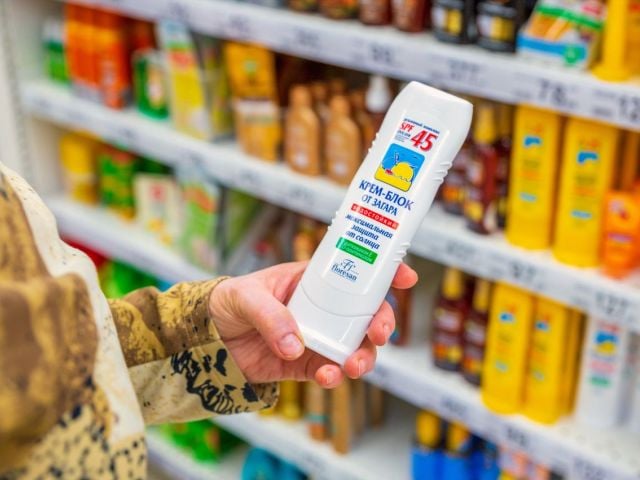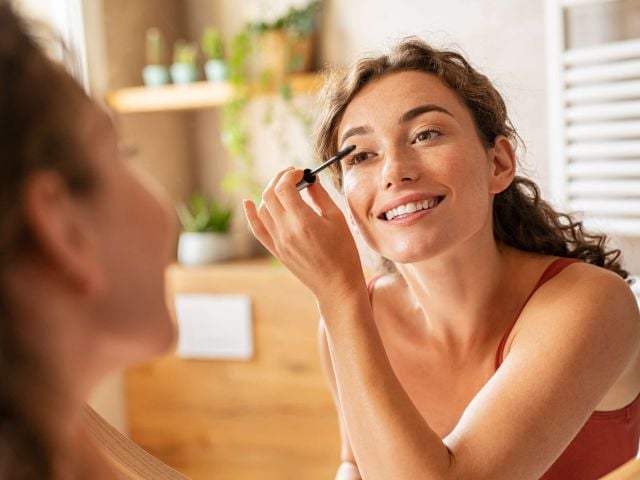Washington − Despite marketing claims like “gentle” and “pure,” dozens of top-selling children’s bath products are contaminated with the cancer-causing chemicals formaldehyde and 1,4-dioxane, according to product test results released today by the Campaign for Safe Cosmetics. The chemicals were not disclosed on product labels because contaminants are exempt from labeling laws.
This study is the first to document the widespread presence of both formaldehyde and 1,4-dioxane in bath products for children. Many products tested for this study contained both formaldehyde and 1,4-dioxane, including the top-selling Johnson’s Baby Shampoo and Sesame Street Bubble Bath.
Formaldehyde and 1,4-dioxane are known to cause cancer in animals and are listed as probable human carcinogens by the Environmental Protection Agency. Formaldehyde can also trigger skin rashes in some children.
“Given the recent data showing that formaldehyde and the formaldehyde-releasing preservative, quaternium-15, are significant sensitizers and causal agents of contact dermatitis in children, it would be prudent to have these removed from children’s products,” said Sharon Jacob, M.D., assistant professor of medicine and pediatrics at the University of California San Diego and contact dermatitis specialist at Rady Children’s Hospital.
The U.S. Consumer Product Safety Commission says that “the presence of 1,4-dioxane, even as a trace contaminant, is cause for concern.”
Contrary to industry statements, there are no regulatory standards that limit formaldehyde, 1,4-dioxane or most other toxic chemicals in personal care products sold in the United States. Other nations have stricter standards. Formaldehyde is banned from personal care products in Japan and Sweden. The European Union bans 1,4-dioxane from personal care products and has recalled products found to contain the chemical.
But there are signs the U.S. is gearing to catch up. Key Congressional leaders point to the findings of this report as further evidence of the need for action. “When products for babies are labeled ‘gentle’ and ‘pure,’ parents expect that they are just that,” said Sen. Diane Feinstein (D-Calif.). “To think that cancer-causing chemicals are contaminating baby shampoos and lotions is horrifying. I intend to soon introduce legislation requiring greater oversight of our cosmetics industry. We need to ensure that the chemicals that are used in our everyday products are safe.”
Rep. Jan Schakowsky (D-Ill.) said, “The fact that we are bathing our kids in products contaminated with carcinogens shows how woefully out of date our cosmetics laws are and how urgently they need to be updated. The science has moved forward, now the FDA needs to catch up and be given the authority to protect the health of Americans.” Rep. Ed Markey (D-Mass.) commented that “Formaldehyde and 1,4-dioxane are better suited for the chem lab, not a child's bathtub. This important report shows that 'No More Tears' can trigger toxic fears, and it provides another reason why these and other cosmetic products must be further regulated.”
For the study, the Campaign for Safe Cosmetics commissioned an independent laboratory to test 48 top-selling children’s products for 1,4-dioxane; 28 of those products were also tested for formaldehyde. The lab found that:
- 17 out of 28 products tested – 61 percent – contained both formaldehyde and 1,4-dioxane; these included Johnson’s Baby Shampoo, Sesame Street Bubble Bath, Grins & Giggles Milk & Honey Baby Wash and Huggies Naturally Refreshing Cucumber & Green Tea Baby Wash.
- 23 out of 28 products – 82 percent – contained formaldehyde at levels ranging from 54 to 610 parts per million (ppm). Baby Magic Baby Lotion had the highest levels of formaldehyde.
- 32 out of 48 products – 67 percent – contained 1,4-dioxane at levels ranging from 0.27 to 35 ppm. American Girl shower products had the highest levels of 1,4-dioxane.
“There is absolutely no reason why manufacturers can’t remove hazardous chemicals in products being applied to babies’ bodies every day,” said Jeanne Rizzo, R.N., president and CEO of the Breast Cancer Fund. “Children are exposed to toxic chemicals from many sources. We need to protect them from these kinds of repeated, unnecessary exposures.”
“Products made in the U.S. and marketed for children should not contain chemicals linked to cancer or any other health problem,” said Jane Houlihan, vice president for research at Environmental Working Group and creator of the Skin Deep cosmetic safety database (www.cosmeticsdatabase.com). “Congress urgently needs to reform federal policy to protect the most vulnerable members of our society by ensuring that the personal care products we use every day are free from harmful chemicals.”
Devra Lee Davis, Ph.D., M.P.H., professor of epidemiology and director of the Center for Environmental Oncology at the University of Pittsburgh Cancer Institute, said that the usual regulatory approach of assessing risk one chemical at a time does not account for the combined effects of very low levels of hidden contaminants in personal care products and from other sources. “Rather than waiting for definitive proof of human harm, we must lower exposures to controllable agents that we know or suspect cause cancer," Davis said.
The full results of the study can be found in the report “No More Toxic Tub” at www.safecosmetics.org/toxictub.
# # #
Founding members of the Campaign for Safe Cosmetics include: Alliance for a Healthy Tomorrow, Breast Cancer Fund, Clean Water Fund, Commonweal, Environmental Working Group, Friends of the Earth, Massachusetts Breast Cancer Coalition, National Black Environmental Justice Network, National Environmental Trust and Women's Voices for the Earth. www.SafeCosmetics.org
Partner organizations in the following states assisted in the release of this report and may be available for interviews and local angles. Please contact Shannon Coughlin, [email protected] or 415-336-2246, for more information.
California (Northern and Southern)
Colorado
Connecticut
Florida
Georgia
Illinois
Massachusetts
Minnesota
Montana
New Hampshire
New York (NYC and upstate)
Pennsylvania
Texas
Washington
Washington, D.C.
Wisconsin



